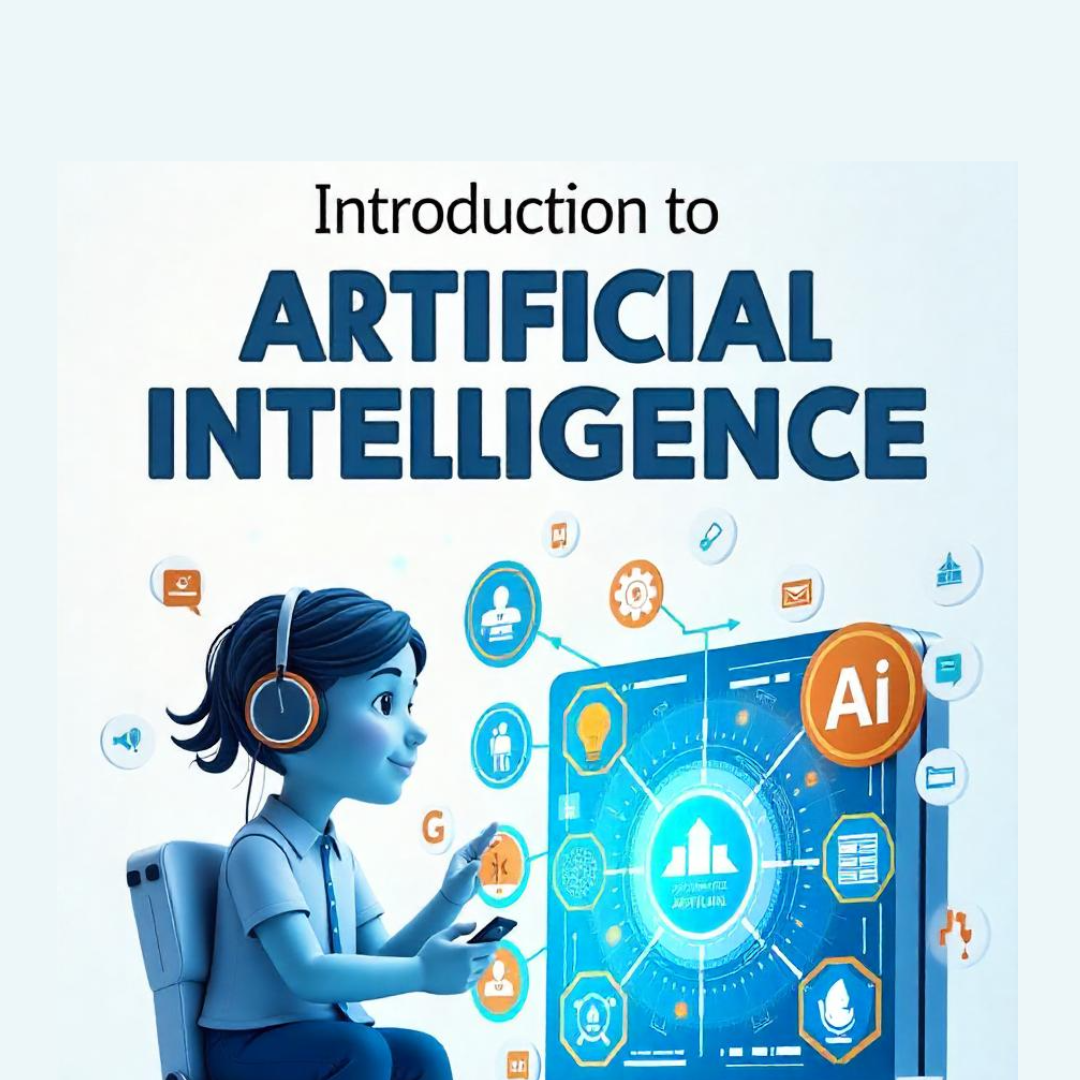Introduction to Artificial Intelligence (AI)
This course is designed to introduce learners to the fundamentals of AI, its core concepts, real-world applications, and ethical considerations. By the end of this course, participants will have a strong foundation in AI principles, empowering them to explore further …
Overview
This course is designed to introduce learners to the fundamentals of AI, its core concepts, real-world applications, and ethical considerations. By the end of this course, participants will have a strong foundation in AI principles, empowering them to explore further advancements in this ever-evolving field.
Objectives of Studying This Course:
- Understand the fundamental concepts and types of AI.
- Gain knowledge of machine learning, deep learning, and neural networks.
- Explore AI tools, technologies, and their real-world applications.
- Learn how AI is transforming various industries.
- Identify ethical and social implications associated with AI.
- Develop basic AI models and gain hands-on experience.
- Prepare for further studies or careers in AI-related fields.
Curriculum
- 6 Sections
- 16 Lessons
- 10 Weeks
- Module 1: Understanding AIArtificial Intelligence (AI) is rapidly transforming the world, revolutionizing industries and reshaping the way we interact with technology. AI enables machines to learn, reason, and perform tasks that traditionally required human intelligence, such as problem-solving, speech recognition, and decision-making. From self-driving cars to virtual assistants like Siri and Alexa, AI is at the core of numerous innovations.3
- Module 2: Core Concepts of AI5
- Module 3: AI Tools and TechnologiesAI development relies on various tools, programming languages, frameworks, and cloud computing services. This section explores the essential technologies that power AI applications4
- Module 4: AI Applications in Various IndustriesArtificial Intelligence (AI) is transforming multiple industries by enhancing efficiency, automating processes, improving decision-making, and delivering personalized experiences. Below are some key AI applications in healthcare, finance, retail, and autonomous vehicles.4
- Module 5: Ethical and Social Implications of AIAs AI technologies become more integrated into society, ethical and social considerations become increasingly important. This section explores critical issues related to AI bias, privacy, employment, and future challenges.3
- Module 6: Getting Started with AI ProjectsDiving into AI development requires setting up the right environment, understanding model-building basics, and accessing learning resources. This guide covers essential steps to get started with AI projects.3






